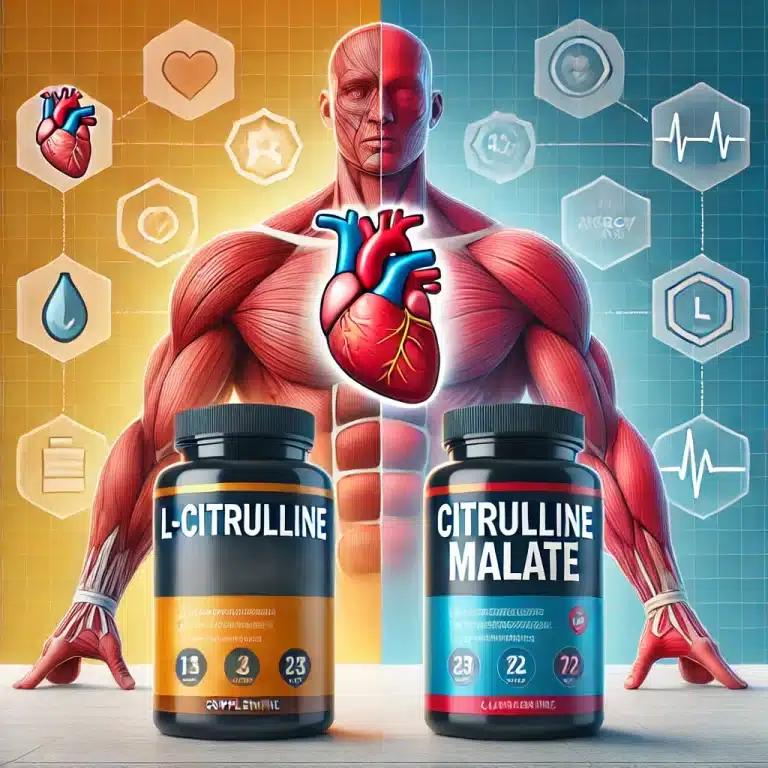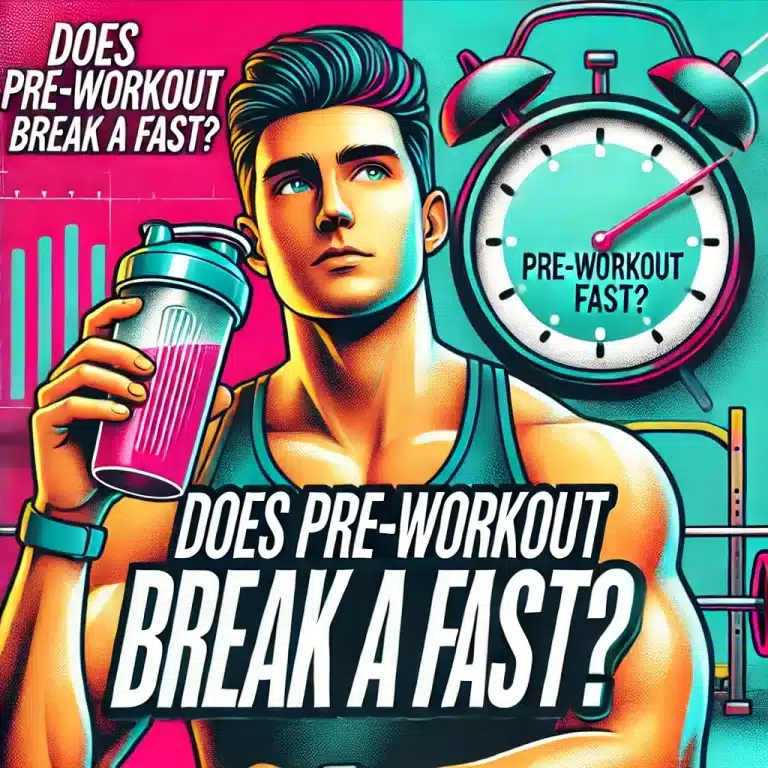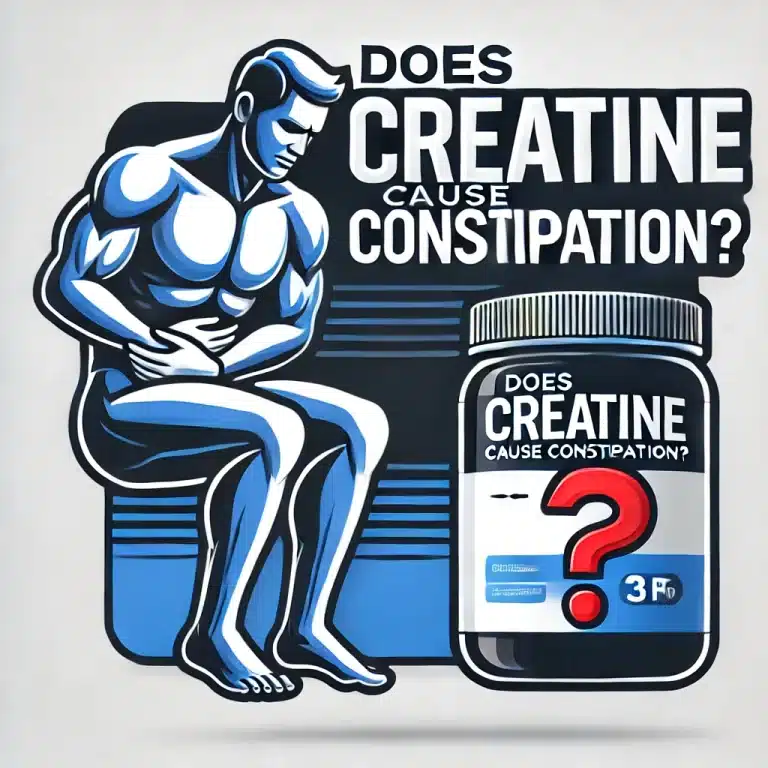Should You Use Pre-Workout for Energy Without Working Out?
Monday morning was slow and dragging, one of those days when even coffee seemed to be working on a delay. Still dusty from yesterday’s lift, I looked at my shaker bottle and saw almost a full tub of pre-workout. The idea struck me: What if I simply grab a scoop, not for training but for survival today?
Sounds recognizable.
Pre-workout pills have taken the stage in gym culture recently. Loud, vibrant, and bursting with promises, energy, focus, drive, pump, and performance. And they produce results. That much is what we know. But today’s major issue we are addressing is this: should you use pre-workout for energy without working out?
Though it sounds like a quick treatment for late-night study sessions, long meetings, or lazy mornings, long meetings or sleepiness are not so straightforward.
We’ll break everything down in this post: what’s in pre-workout, how it impacts your body, the benefits, the hazards, and when, if at all, it makes sense to take it outside the gym.
How Pre-Workout Provides Energy?
Although they are mostly meant to feed your body and mind for physical exercise, pre-workout pills let us precisely explain how they achieve this:
Caffeine:
Most pre-workouts have caffeine as their key ingredient since it blocks adenosine receptors in the brain, therefore lessening tiredness. This mechanism also boosts norepinephrine and dopamine release, hence enhancing focus and alertness. This means more alertness and sharper mental clarity for someone getting ready to exercise; in non-exercise situations, the same impact might leave you feeling overstimulated or restless if not controlled correctly.
Beta-Alanine:
Longer times of intensive activity are made possible by this amino acid’s aid to buffer lactic acid in your muscles. While this is helpful during activity, in a non-active environment the tingling sensation, known as paresthesia, can seem uncomfortable or distracting without providing much practical advantage.
Creatine:
Renowned for enhancing strength and power output, creatine’s use in pre-workouts promotes muscle performance. But without physical exercise, your body is not likely to draw on these reservoirs of energy.
Nitric Oxide Precursors (e.g., L-Arginine, Citrulline):
By relaxing blood arteries, these components increase blood flow, hence enhancing endurance during exercise. Though it’s not as strong as during physical activity, the effect may show up as warmth or a minor energy boost outside of exercise.
Other Stimulants and Additives:
Many pre-workouts call for extra vitamins, adaptogens, or stimulants meant to improve attention and energy. These might provide some mental elevation, but they are not a replacement for a healthy diet or enough sleep.
Although these ingredients can kick in, pre-workouts are designed for particular physical demands, and using them outside of this context could not be in line with your body’s real needs.
Should You Use Pre-Workout for Energy Without Working Out?
Though technically you can take pre-workout without doing out, you should carefully consider the advantages and drawbacks. Here is a broad view of the important factors:
1. High Caffeine Content
One serving of many pre-workouts has 200–400 mg of caffeine, equivalent to two to four cups of coffee. Although this can greatly increase alertness and focus, a lack of physical activity to burn off the energy could cause negative effects including jitteriness, restlessness, or heart rate increase. If taken later in the day, this can aggravate anxiety or throw off sleep patterns for those sensitive to caffeine.
2. Unnecessary Ingredients
Usually including substances like beta-alanine, which can create tingling sensations, or creatine, which helps muscle repair and strength, pre-workout supplements are meant to support athletic performance. These components are either minimal or nonexistent without exercise, so they are essentially useless. In non-work situations, you could be paying for features you never use.
3. Tolerance Buildup and Dependency
Pre-workouts used regularly as a daily energy source can cause tolerance, so diminishing their efficacy with time. Higher doses may therefore be needed to have the same effects, so raising the risk of caffeine dependency and withdrawal symptoms including headaches, tiredness, and irritability. Additionally undercutting better energy-boosting behaviours like keeping a balanced diet and obtaining enough sleep is over-reliance.
4. Cost vs. Effectiveness
While basic options like coffee or tea can provide comparable energy-boosting effects at a fraction of the cost, pre-workout pills can be costly. Pre-workouts might not be the best value for money if your only aim is to keep energized for everyday chores.
5. Risk of Side Effects
Apart from jitteriness, pre-workouts can produce other negative effects when taken without exercise, such:
- Headaches and Nausea: High doses of stimulants can cause headaches or dyspepsia in some people.
- Increased Heart Rate: Without physical activity to balance them, the stimulatory effects could feel unpleasant.
- Dehydration: Pre-workouts can have a diuretic effect, therefore raising the risk of dehydration if not combined with enough water consumption.
6. Behavioral Shifts
Using pre-workout in non-exercise situations could change your view of its intended function, thereby making it more difficult to value its contribution to improving workouts. This could turn attention from developing greener, better energy sources.
Consider the Context:
Although pre-workouts could be useful in particular situations, such as being attentive throughout extended work sessions or fighting tiredness, they shouldn’t be a first-choice answer. Always evaluate your objectives and whether, in a non-exercise environment, pre-workout is the right instrument to reach them.
| Factor | Details |
|---|---|
| High Caffeine Content | One serving of many pre-workouts has 200–400 mg of caffeine, similar to 2–4 cups of coffee. Without physical exercise, adverse symptoms including jitteriness, fast heart rate, or insomnia could follow. |
| Unnecessary Ingredients | Specifically meant to improve workout performance, ingredients like beta-alanine and creatine could not show any clear advantages if you’re not active. |
| Tolerance Buildup | Regular pre-workout use can result in caffeine tolerance, which calls for larger doses over time and could develop into dependency. |
| Cost vs. Benefit | Pre-workouts can get costly. Using them outside of workouts could not be justified because alternatives like coffee or tea can have comparable effects at a less cost. |
| Potential Side Effects | Pre-workouts could be expensive. Using them outside of exercises would not be acceptable since substitutes like coffee or tea can have similar effects at a lower cost. |
Carefully weighing these factors will help you decide whether utilizing pre-workout without working out fits your demands and health objectives. Always give moderation top priority and look at other ways to keep energy to prevent possible negatives.
Why People Take Pre-Workout Without Working Out?

While using pre-workout without exercising is not usually advised, there are several unusual circumstances when utilizing pre-workout for non-exercise objectives could make sense:
Long Study or Work Sessions:
Pre-workout’s caffeine and focus-boosting components might help you stay mentally alert whether you’re preparing for a test or working towards a deadline. Studies indicate that caffeine enhances cognitive ability for jobs requiring constant attention and concentration. Still, one should keep an eye on the dosage to prevent overstimulation.
Combatting Jet Lag or Sleep Deprivation:
Dealing with a poor night’s sleep or crossing time zones might leave you exhausted. A pre-workout pill could give the brief energy boost required to remain vigilant in crucial meetings or when negotiating strange surroundings. Remember, though, that effective management of jet lag also depends critically on water and light exposure.
Temporary Energy Boost for Manual Tasks:
Moving furniture or a long day of garden work pre-workout might give someone confronting a physically hard chore outside of a gym environment a useful boost of energy to get through. This application more closely fits its original use of enhancing physical performance.
Short-Term Focus for Creative Projects:
Pre-workouts offer artists, authors, or anybody involved in high-intensity creative activity extra attention. Ingredients like caffeine and L-theanine, if included, can balance alertness and tranquility to support creativity.
During Long Drives:
Pre-workout is a substitute for energy drinks for drivers who must remain awake and aware for long stretches. To prevent mishaps linked to tiredness, though, it’s important to combine this with frequent rests and fluids.
Emergency Situations:
Pre-workout can be a temporary fix in cases when remaining awake and attentive is non-negotiable, say you are looking after a sick loved one overnight. Still, it shouldn’t substitute other energy-boosting techniques like good diet and hydration.
Healthier Alternatives for Energy:
Here are some somewhat good substitutes for pre-workout for a non-exercise-related energy boost:
Coffee or Tea:
These venerable selections offer a more subdued and natural caffeine rush. For instance, green tea has a tiny amount of caffeine mixed with L-theanine, which helps to create a calm but alert mental state. Black coffee provides a basic energy boost free from the extra stimulants sometimes included in pre-workouts.
Balanced Snacks:
Foods like a banana with peanut butter, Greek yogurt with honey, or a handful of mixed nuts will help to steady blood sugar levels and give ongoing energy. To keep you going all through the day, these snacks mix carbs, protein, and good fats.
Hydration:
Mild dehydration can cause tiredness and lowered concentration as well. When needed, drinking water or hydrating with electrolyte-rich beverages, such as coconut water or sports drinks—can quickly help you feel more energetic.
Herbal Energy Boosters:
For adults and children, adaptogenic herbs including ginseng, ashwagandha, or Rhodiola rosea have been found to lessen tiredness and improve concentration. For a natural lift, these can be drunk in teas, pills, or specifically energy beverages.
Exercise:
Ironically, depending on supplements is not as effective as a little walk or stretching session in terms of energy increase. Physical exercise raises blood flow, generates endorphins, and sharpens brain acuity.
Sleep Hygiene:
The best sustainable approach to guarantee consistent energy levels throughout the day is giving excellent sleep habits top priority: keeping a regular sleep schedule, avoiding devices before bed, and designing peaceful surroundings as a top priority.
B Vitamins:
Found in foods such as whole grains, eggs, and leafy greens, B vitamins are critical for cellular-level energy generation. If you think you could be deficient, under the direction of a healthcare professional think about including a B-complex supplement.
Mindfulness Practices:
Meditation, deep breathing exercises, or even a little screen break will help you clear your head and refocus. These techniques help you to lower stress and stop mental tiredness from consuming your daily activities.
Including these better substitutes in your regimen will help you get a consistent and dependable supply of energy without depending on pre-workout pills. More appropriate for long-term use, they encourage general well-being instead of temporary solutions.
Is It Ever a Good Idea?
Usually used sparingly, pre-workout is a sophisticated non-exercise energy source. Though it’s not a desirable practice, in some cases it could be justified:
Emergency Focus Needs:
Pre-workouts with high caffeine content may momentarily increase focus and alertness whether your project is urgent, you have to fulfill a key deadline, or you are handling a catastrophe. Use it sparingly though; over-reliance might cause burnout or dependency.
Limited Sleep Scenarios:
If you had a bad night’s sleep and had to remain awake such as at a crucial meeting or while looking after someone pre-workout may offer a temporary energy fix. All said long-term health depends on addressing the underlying cause of sleep loss.
Short-Term Physical Tasks:
Pre-workout could be beneficial in cases when quick yet strong energy is needed, such as moving bulky objects or finishing a labor-intensive chore. This use case fits the original intent of the product but in another non-gym environment.
Special Events or Travel:
Pre-workout could be a one-time energy boost in situations like keeping awake during extended travel days or juggling a crowded calendar of events. Always track your body’s reaction and stay away from combining it with other stimulants like energy drinks.
Considerations Before Using Pre-Workout Without Exercising
- Frequency: While sporadic pre-workout use in non-exercise settings could be reasonable, continuous use could cause reliance or reduced results.
- Dosage: Start with a smaller dosage to test your body’s tolerance, particularly if you’re not active.
- Hydration: Dehydration can result from pre-workout if not counterbalanced with enough water.
- Alternatives: Initially look at better, more sustainable choices like relaxation or a good diet.
Although pre-workout pills can be helpful in very particular, temporary situations outside the gym, they should not substitute better and more natural ways of increasing energy. Use them sensibly; if you are doubtful about their relevance for your circumstances, think considering seeing a medical practitioner.
Frequently Asked Questions (FAQs):
Can I take pre-workout every day, even if I’m not exercising?
Although daily usage of pre-workout without exercise is not advised even theoretically conceivable. The strong caffeine concentration might cause reliance, tolerance development, and possibly adverse effects including jitteriness or insomnia. For long-lasting energy, healthier substitutes include coffee or well balanced foods are best.
What are the side effects of using pre-workout without physical activity?
Typical adverse effects are nervousness, fast heart rate, headache, nausea, and dehydration. These symptoms could seem more noticeable without activity to counter the stimulating effects.
Can pre-workout help me focus on work or studying?
Indeed, pre-workout’s caffeine and other stimulants help to momentarily increase focus. It is not meant for cognitive activities, though, hence more appropriate selections like coffee, tea, or nootropic tablets are usually preferable ones.
Are there any long-term risks to using pre-workout for energy?
Long-term use can cause caffeine dependency, lower efficacy, and perhaps cardiovascular system stress. Pre-workout sparing should be used just when absolutely needed.
How can I safely use pre-workout without exercising?
Start with a smaller dosage to gauge your tolerance if you decide to take pre-workout. Avoid using it near bedtime to reduce negative effects; pair it with enough water. Make sure this behavior is sporadic rather than habitual.
What are better alternatives to pre-workout for energy?
Healthier substitutes are coffee, tea, well-balanced food, water, and good sleeping habits. These choices offer sustainable energy without running the dangers connected with pre-workout pills.
Final Thoughts:
So… should you use pre-workout even if you’re not working out?
Indeed, but only sometimes and with great care.
Pre-workout can give a strong boost in energy and concentration. It is not meant to be your daily substitute for coffee, though. Designed for movement, performance, and pushing through tiredness at the gym, it Using it without an exercise means you are consuming all the stimulants without making use of them.
If you’re pressed for time, want a quick mental clarity flash, and have no heart or stimulant sensitivity? One half scoop might do the work. But on a daily basis? very likely not the best call.
Your best friend should be stored for the gym. Use it whether you’re pushing the sledge, striking the iron, or working through HIIT. Allow it to perform as it is designed.
Otherwise, there are better strategies to remain awake and attentive than fooling your body into believing it’s about to deadlift a small vehicle.
The good is energy. Still, harmony is essential. That’s much better.






